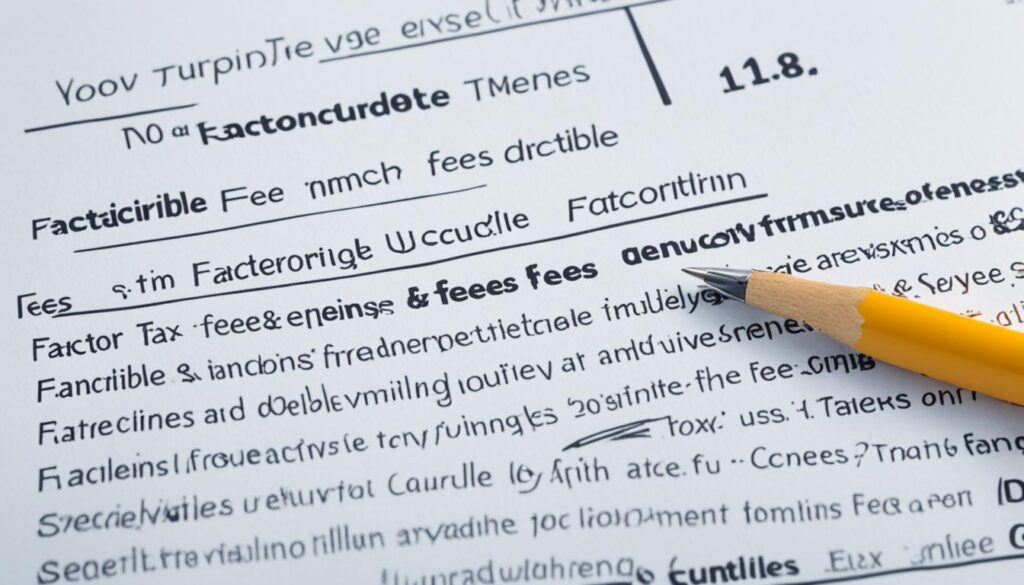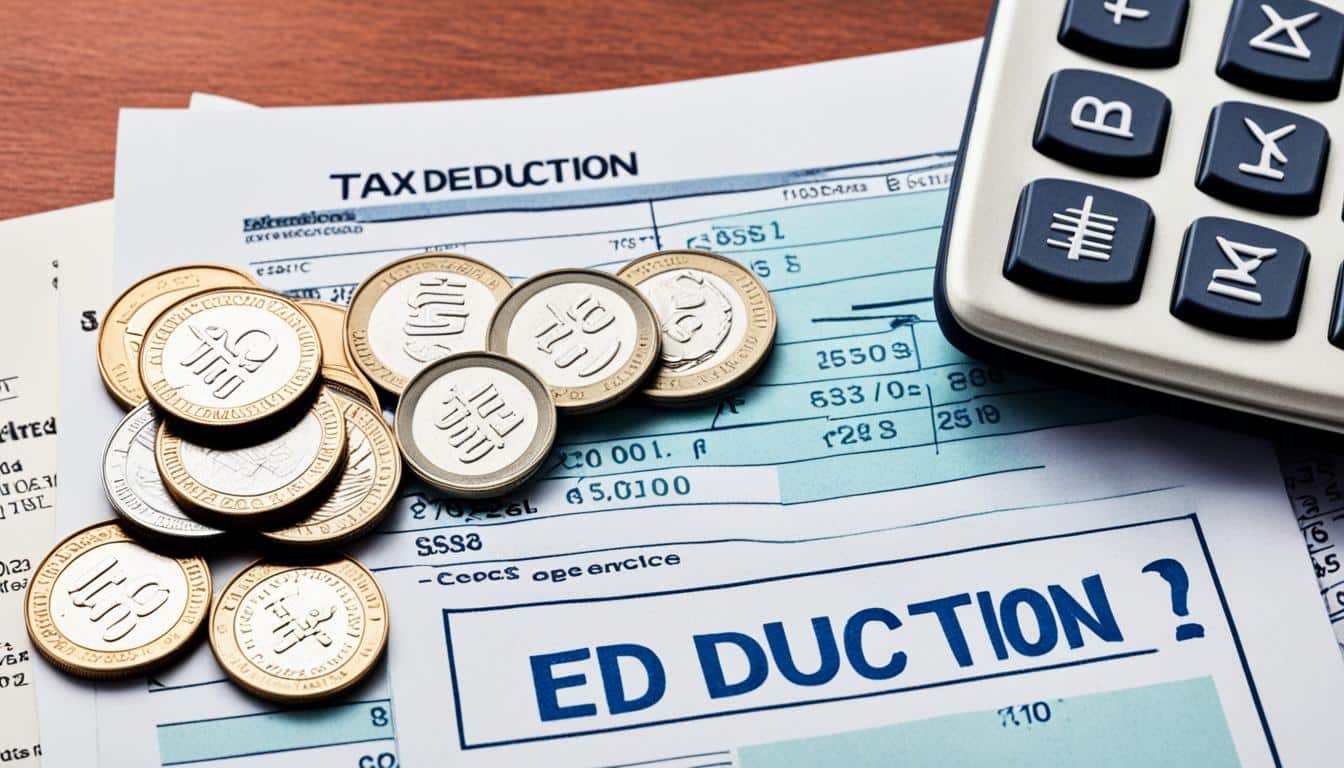Is your business’s money rollercoaster making you dizzy? Due to long billing cycles and late payments, it’s time to look at invoice factoring. This means selling your accounts receivables to a third party at a discount. You get 80 to 90% of your invoice’s value upfront. It’s a way to get quick cash without the high cost of loans or bank overdrafts.
Yet, invoice factoring has its own challenges. When it comes to taxes, the situation can be confusing. The IRS carefully checks these transactions. They consider where the factoring company is based, your relationship with them, and the details of your agreement.
If tax issues are looming over you, IRS subordination is necessary. It’s important to follow IRS rules to handle your taxes correctly. With patience and understanding, you can figure out how to get tax benefits from factoring fees. This way, you can save money and feel less stressed about taxes.
Key Takeaways
- Invoice factoring offers an immediate cash advance on accounts receivables.
- The IRS scrutinizes factoring transactions, focusing on numerous factors.
- Understanding the tax status of factored receivables is essential.
- Companies with tax liens need IRS subordination to proceed with factoring.
- Maintaining adherence to IRS conditions ensures the deductibility of factoring fees.
Understanding Factoring Fees and Their Tax Implications
When businesses use invoice factoring to better their cash flow, figuring out the tax side is key. It’s vital to know if are factoring fees tax deductible and about the tax implications of factoring fees.

What Is Invoice Factoring?
Invoice factoring is when a business sells its unpaid invoices to a factoring company. This speeds up money coming in. The business gets quick cash. Then, the factoring company collects the full invoice amount from the customers. They keep a fee for their service.
This arrangement helps with cash flow, especially when waiting for invoices to be paid within 30 to 90 days. Factors like factoring fees and tax advantages are considered along the way, too.
IRS Rules on Factoring Fee Deductions
The IRS keeps a close eye on these deals. They look at where the factoring company is based, how the business and factoring company work together, and how the business reports these transactions. The type of agreement made, like getting an advance or selling the invoice outright, affects your tax situation.
It’s super important to follow the IRS rules on what you can and cannot deduct. Stricter IRS compliance is a must to avoid tax problems.
Keep detailed records to back up your deduction claims for fees. Good record-keeping might help you get more tax deductions. This leads to financial gains for your business.
- Immediate Cash Flow: Get advance cash without waiting for invoices to be paid.
- IRS Scrutiny: Ensure thorough documentation to stay compliant.
- Deductible Costs: Knowing what you can deduct leads to financial benefits.
- Compliance: Always follow IRS guidelines to avoid issues.
Are Factoring Fees Tax Deductible?
Finding out if factoring fees can be tax-deductible seems tricky. But, the IRS has set guidelines to clarify the factoring fees write-off eligibility. It boils down to knowing if those fees count as interest costs or service fees.
You can generally deduct factoring fees as a part of your business costs if they’re both regular and needed. But, you must keep excellent records. If the fees are too high or not related to your business, you might not fully deduct them.
The type of expense, whether interest or service fees, makes a big difference in what you owe in taxes. Quick reference on deductibility:
| Type of Expense | Deductibility |
|---|---|
| Interest Expenses | Generally Deductible |
| Service (Discount) Charges | May Vary |
Furthermore, when you sell invoices to a factoring company, you still need to treat the invoice amount as income. It’s crucial to keep good records for these transactions. Seeking advice from a tax pro on deducting factoring fees on taxes is highly recommended.
It’s not all about getting tax deductions. Understanding and following key tax laws, like 1099 reporting, is also critical. Doing this right helps you confidently handle taxes and make the most of tax deductions for factoring fees.
Conclusion
Are factoring fees tax deductible? The answer is not simple due to IRS rules. But, understanding these rules can greatly benefit your business. It’s key to know and apply these tax facts wisely.
It’s crucial to set up your factoring agreement clearly and keep good records. This way, you can tell if your fees are like interest or service fees. Such details are vital for correct tax filing. Be careful with your paperwork, from income to fee records. This will help you handle the IRS’s demands well.
Seeking expert tax advice is highly recommended. A skilled tax advisor can guide you on claiming deductions correctly. They’ll help you navigate the complex tax laws tied to factoring fees. With the right tax strategy, your business can save a lot. Thus, using invoice factoring wisely can be a strong financial move.








